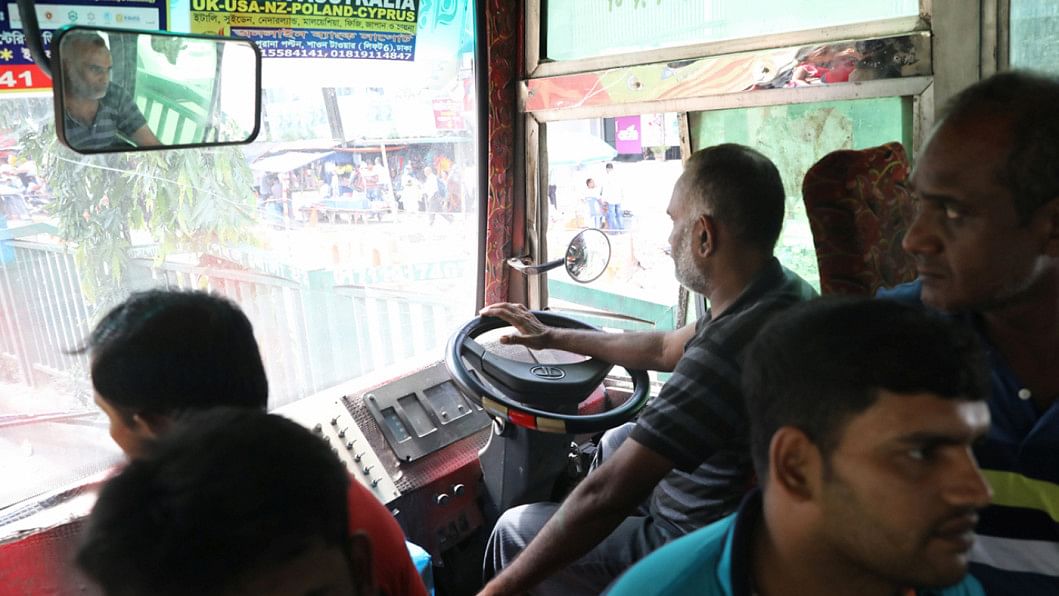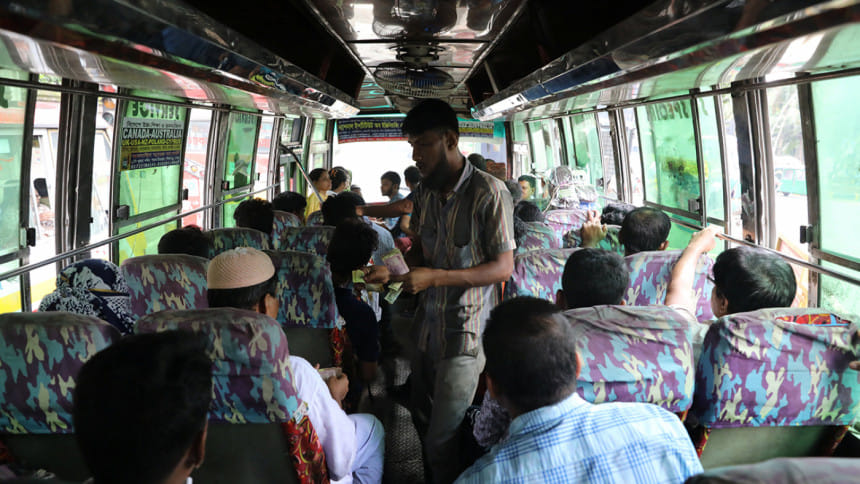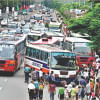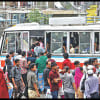Bus drivers say accidents not entirely their fault

Khurshid Alam says he pulls 17-hour shifts three days a week driving a private bus in Dhaka, where tens of thousands of students held angry protests for over a week demanding an end to rash driving that killed two teenagers late last month.
Prime Minister Sheikh Hasina's government has moved swiftly to defuse the protests that were threatening to spiral, with an eye on general elections due by the end of the year. On Monday, the cabinet approved raising the maximum jail time for rash driving deaths to five years from three.
Overworked and underpaid drivers like Alam are often blamed for Bangladesh's high traffic casualty rate - road accidents kill or injure at least five people an hour in the country - and the resentment against them has been aggravated by the deaths of the two students last Friday.
Most bus drivers do not get paid monthly salaries but earn commissions based on the number of passengers picked, leading them to race each other for passengers.
The two students were killed when the driver of a bus speeding to pick up passengers ahead of other buses in a congested part of Dhaka lost control and ploughed into the bus stop, a court heard this week.
The crowded capital of 18 million has been paralysed by angry students since then, although the protests have now tapered off. Police have fired tear gas and used water cannon to disperse protesters, as students, many in their school uniforms, stopped vehicles, demanding to check drivers' licences and their vehicles' roadworthiness.
"I start driving at 6 am and continue up to 11 pm," said a bearded Alam, 45, as he got ready for a trip on his green and ash bus with a cracked windshield, in a city teeming with scuffed up buses and beaten-up, used cars.
Alam said he had reported the cracked windshield to the bus owner, but it was yet to be replaced.

He said he works for three days a week, making up to 1,200 taka ($14) a day. A bus driver on contract with the Delhi Transport Corporation in neighbouring India earns as much as three times that.
"If we get a monthly salary then we can drive without any tension. We always have to keep thinking about our earnings," Alam said.
As he stepped on the accelerator, a cycle-rickshaw with two passengers suddenly appeared in front of the bus, forcing him to hard-brake.
SAFETY COSTS
"We are working to bring discipline in the streets," said Khondaker Enayet Ullah, secretary general of the Bangladesh Road Transport Owners Association.
"It's true that shortage of drivers often compels us to hire unskilled drivers. But we are asking the transport owners not to appoint anyone without proper licenses from now on."
About 4,000 people were killed in driving deaths in Bangladesh in 2017 and 2,350 in the first seven months of this year, according to data compiled by the Accident Research Institute at the Bangladesh University of Engineering and Technology.
Many protesters have demanded the government tighten transport regulations, including by setting limits on the hours worked by drivers and providing a minimum monthly salary.
But Abul Qasem, who owns the Tusher Transport Company in Dhaka that has 10 buses, said implementing those suggestions would mean higher fares that customers in the price-sensitive country would not readily agree to.
"If the government asks us to fix eight hours duty a day, we will follow it. In that case, fares will increase because then there will be at least two shifts a day," said Qasem. "That will anger passengers. Will the government then subsidise us?"
The drivers say they also want the government to install more traffic lights and build dedicated lanes for pedestrians, instead of putting all the blame on drivers.
"Everybody has a guardian to take care of their interests but we don't," said bus driver Alam.

 For all latest news, follow The Daily Star's Google News channel.
For all latest news, follow The Daily Star's Google News channel. 









Comments